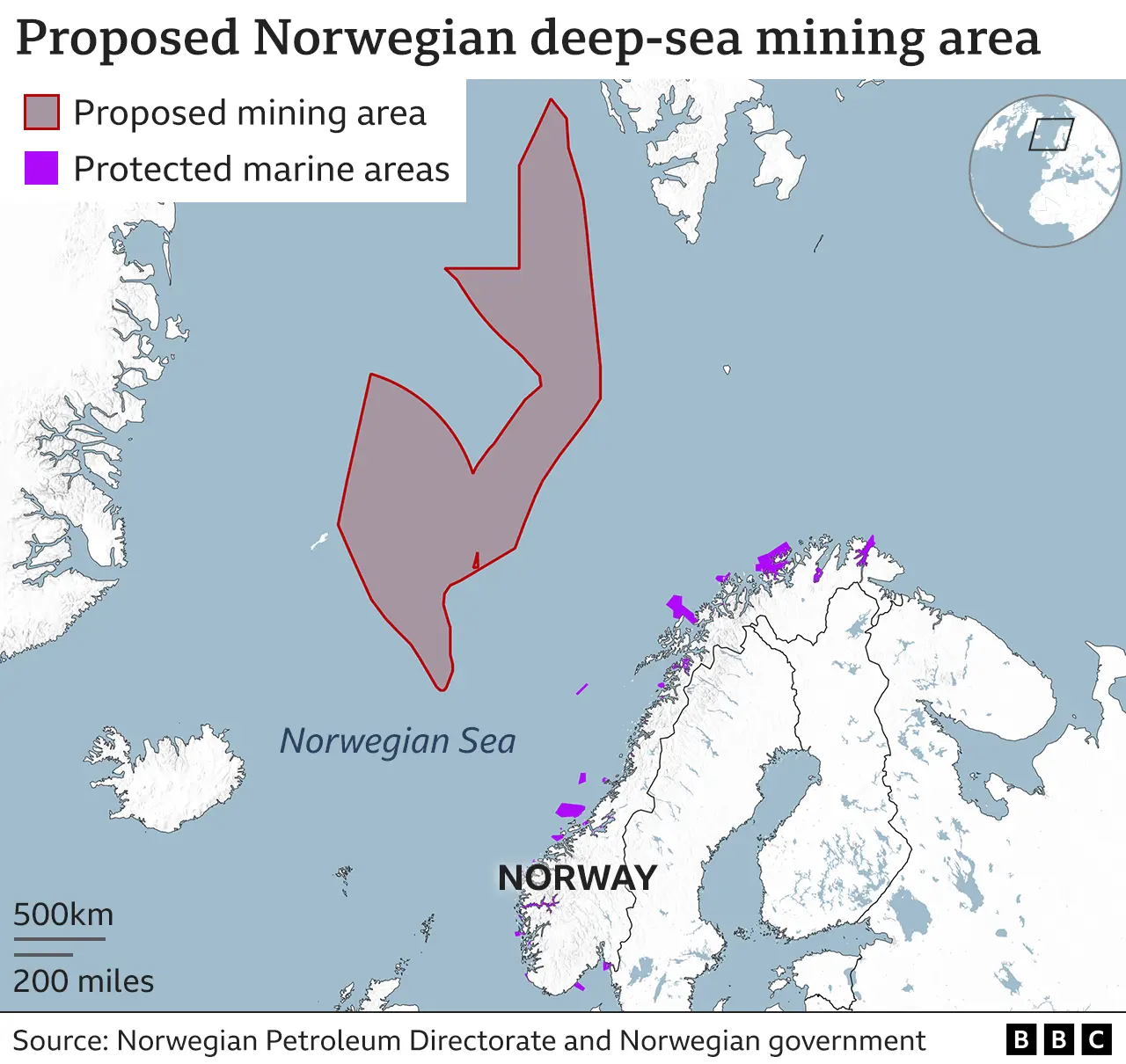
Deep-sea mining refers to the extraction of valuable minerals and resources from the ocean floor at depths greater than 200 meters (656 feet). The deep-sea mining industry targets various types of seabed environments, including polymetallic nodules, polymetallic sulphides, and cobalt-rich ferromanganese crusts. These areas often contain high concentrations of precious metals and rare earth elements.

There are three primary types of deep-sea mineral deposits targeted for mining:
1. **Polymetallic Nodules:** These are potato-sized nodules found on the abyssal plains of the ocean floor. They contain a variety of metals such as nickel, copper, cobalt, and manganese.
2. **Polymetallic Sulphides:** These deposits are formed around hydrothermal vents on the ocean floor. They contain minerals like copper, gold, silver, and zinc.
3. **Cobalt-Rich Ferromanganese Crusts:** These crusts develop on underwater mountains, seamounts, and other raised features. They are rich in cobalt, nickel, and other metals.
The potential for deep-sea mining has sparked both interest and controversy. Proponents argue that it could provide access to valuable resources critical for emerging technologies, such as electric vehicle batteries and renewable energy systems. However, there are significant environmental concerns surrounding deep-sea mining. Critics worry about the potential destruction of unique and fragile ecosystems, the release of harmful substances into the ocean, and the potential impacts on marine biodiversity.
As of my last knowledge update in January 2022, deep-sea mining had not yet become widespread, and there were ongoing discussions and debates regarding its environmental and economic implications. It’s advisable to check more recent sources for updates on the status and regulations surrounding deep-sea mining as the situation may have evolved since then.
Norway has become the first country in the world to move forward with the controversial practice of commercial-scale deep-sea mining.
The bill, passed on Tuesday, will accelerate the hunt for precious metals which are in high demand for green technologies.
Environmental scientists have warned it could be devastating for marine life.
The plan concerns Norwegian waters, but agreement on mining in international waters could also be reached this year.
The Norwegian government said it was being cautious and would only begin issuing licences once further environmental studies were carried out.
Read more about Deep-sea mining: Norway approves controversial practice.
